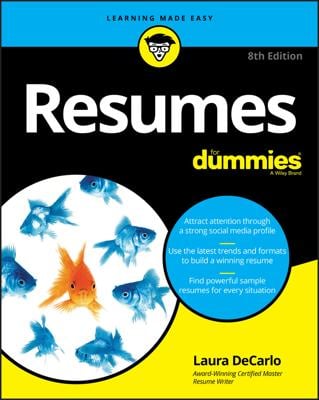Every job hunter knows that a resume should show employment history, but to be truly successful in your job search, make sure you also include these five things on your resume. Competition for good employment is always fierce, and ignoring a few simple rules will get you passed over without a second look.
Contact information
Believe it or not, it happens all too often that contact information is left off of a resume. Right underneath your name on the resume should be your mailing address, email address, and phone number.
Don’t get cute with your email address. If your email address is BikerChick@emaildomain or BeerPongChamp@emailserver, set up another account with a nondescript address that doesn’t label you in any way.
If you have a cell phone, list it, not your parents or shared apartment’s land line as the number on your resume. Dump the hip-hop voice mail message and record something simple in a clear, firm voice.
Keywords in key places
There are many ways to say the same thing. Take keywords from the job description and insert them in your resume objective or goal section. Research the prospective employer’s mission statement and history to rephrase your experience to fit not only their published needs, but perhaps another job yet unlisted. Jobs have been created for people who were perceived as a good fit for the firm.
Having the right keywords is especially important for online applications, which are frequently screened by computer programs looking for the right keywords.
Many professionals have several versions of their resumes, each emphasizing a different set of qualifications. One version may show strong management attributes, another may focus on sales, another on technical expertise.
Career summary
We are all the sum of our experiences (and then some), and many believe that our past actions define who we are today. A career summary section should be a descriptive selling point distilled from your past accomplishments that emphasizes your future value to the potential employer. In it, you list key achievements, skills, and experience relevant to the job you're applying for.
Job objective
It’s important to tailor the Job Objective section of your resume to closely match the position being applied for and not be generic. The more your job objective seems to fill a company’s need, the better chance you have of getting an interview. The job they have should seem to be your life’s ambition. Use keywords. Customize the job objective to align with the position you're applying for.
Awards, recognitions, and industry training
This section of your resume can say a lot about you. In it, list any awards received, industry seminars attended, and any other achievements that you consider relevant and that aren’t listed elsewhere.
Keep in mind that no one is interested in your fishing tournament trophy, that you were prom queen, or that you took a course in palm reading. What you list here will add merit to your resume if the contents are perceived by the reader as true accomplishments.

